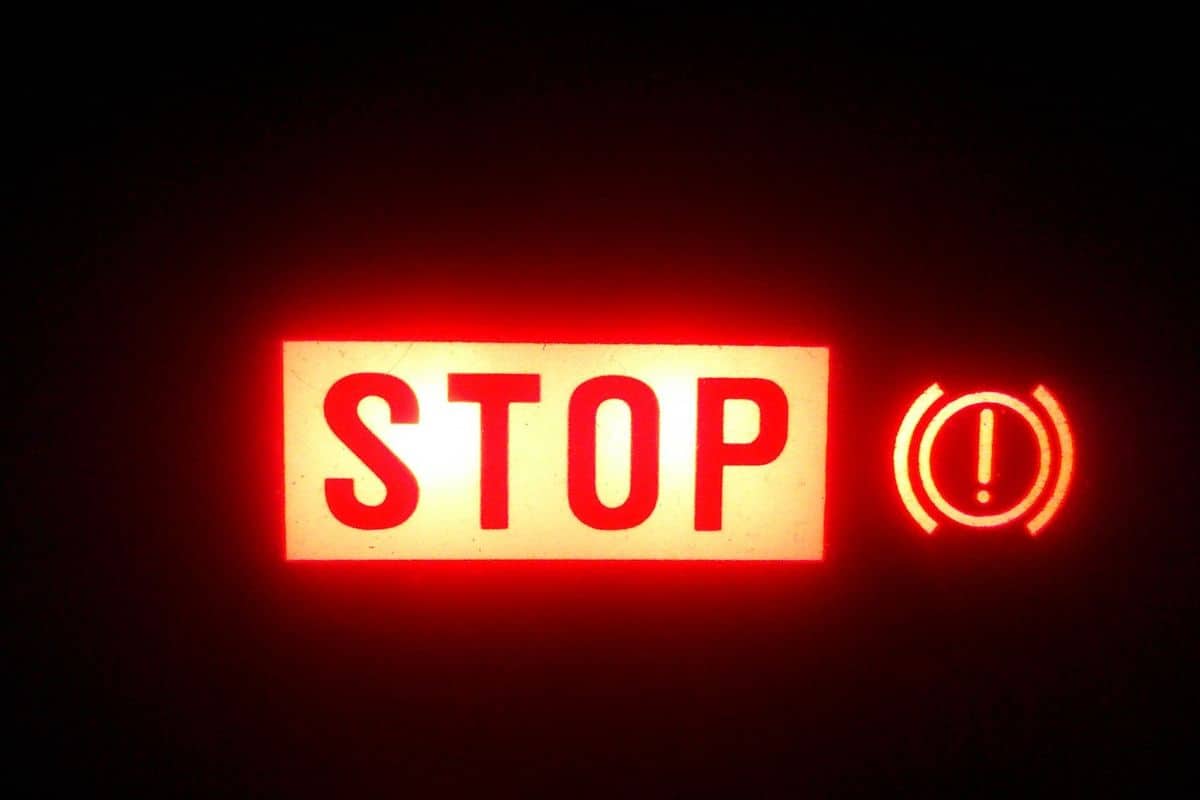The master cylinder is a crucial component of a vehicle’s braking and clutch systems, but we will focus on bad brake master cylinder symptoms in this article.
It is responsible for converting the force applied to the brake pedal into hydraulic pressure, which is then used to engage the brakes.
If the master cylinder fails, it can lead to several bad symptoms that can affect the performance of the brakes and, ultimately, the safety of the driver and passengers.
These symptoms include soft or spongy brakes, leaking brake fluid, brake warning lights, locking up or dragging, and noisy brakes.
This article will discuss some of the most common bad master cylinder symptoms drivers should be aware of.
Table of Contents

5 Bad Master Cylinder Symptoms
Soft Or Spongy Brake Pedal
One of the most apparent signs of a bad master cylinder is a soft or spongy brake pedal.
When the master cylinder fails, it may not generate enough hydraulic pressure due to an internal seal leak to engage the brakes fully.
As a result, the brake pedal may feel soft or spongy when pressed and travel much further down, and the vehicle may take longer to stop.
This can be especially dangerous in emergencies where quick and responsive braking is essential.
Leaking Brake Fluid
Another common symptom of a bad master cylinder is leaking brake fluid.
The master cylinder contains a reservoir that holds the brake fluid used to engage the brakes.
If the master cylinder or reservoir is damaged or worn, it can develop leaks that allow the brake fluid to escape.
This can cause a drop in hydraulic pressure, affecting the brakes’ performance.
Drivers may notice fluid leaking from under the vehicle or a low brake fluid level in the reservoir.
If the brake fluid leak is right next to any wheel, it will rather be a bad brake caliper symptom.
Dashboard Warning Light
Many modern vehicles have dashboard warning lights that alert drivers to system problems.
If the master cylinder fails, it may trigger the brake warning light on the dashboard.
This light can indicate various issues with the braking system, including low brake fluid levels or a malfunctioning master cylinder.

Brakes Lock Up Or Drag
A bad master cylinder can also cause the brakes to lock up or drag.
When the master cylinder fails, it can cause the brake calipers or drums to remain engaged, even when the driver releases the brake pedal.
This can cause the brakes to lock up, which can be dangerous while driving.
Drivers may also notice a burning smell or increased wear on their brake pads or shoes.
Noisy Brakes
Finally, a bad master cylinder can also cause noisy brakes.
When the master cylinder fails, it can affect how the brakes engage and disengage.
When applied or released, as mentioned above, when it fails to disengage the brakes, this can cause the brakes to make unusual noises, such as squeaking or grinding.
Drivers may also notice a decrease in braking power or a change in the feel of the brakes.
If you have the time or are up to the challenge, you can replace your brake master cylinder on your own with the help of this video from the O’Reilly Auto Parts store:
Final Thoughts On Bad Master Cylinder Symptoms
In conclusion, the master cylinder is a critical vehicle braking system component. If it fails, it can cause a range of bad symptoms that can affect the safety and performance of the brakes.
Hopefully, you found this article helpful, and it will keep you and your car safely on the road for many miles.
FAQs
What Happens When the Master Cylinder Goes Bad?
There are two scenarios one is loss of brake fluid pressure that can be caused by an internal seal leaking or the master cylinder itself being damaged and leaks from the fittings or reservoir.
This causes the brake pedal to become soft/spongy and unable to hold pressure.
The second scenario is the brakes locking up or dragging where there is something in the master cylinder, foreign material, that catches the cylinder when engaged and won’t let it freely move back to the idle position.
Can A Master Cylinder Be Bad Without Leaking?
Yes, a master cylinder can have an internal leak that is not visible from the outside, causing it not to build hydraulic pressure.
This usually happens when the internal seal wears out or tears due to foreign material.
Can I Drive With A Bad Master Cylinder?
No, since the vehicle is either losing brake pressure or locking or dragging the brakes, all three outcomes are dangerous on the road.
With failing brake pressure, the distance to come to a halt is significantly increased, and if the brakes lock up while driving, it can cause you to lose control of the vehicle.
The best plan of action is to get the vehicle towed to a trustworthy workshop or your house if you are willing to DIY it yourself.
